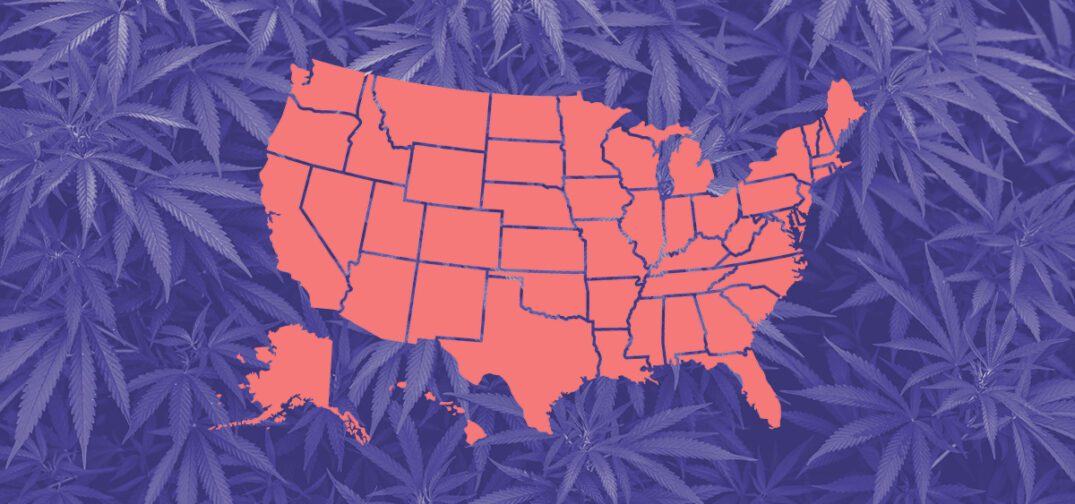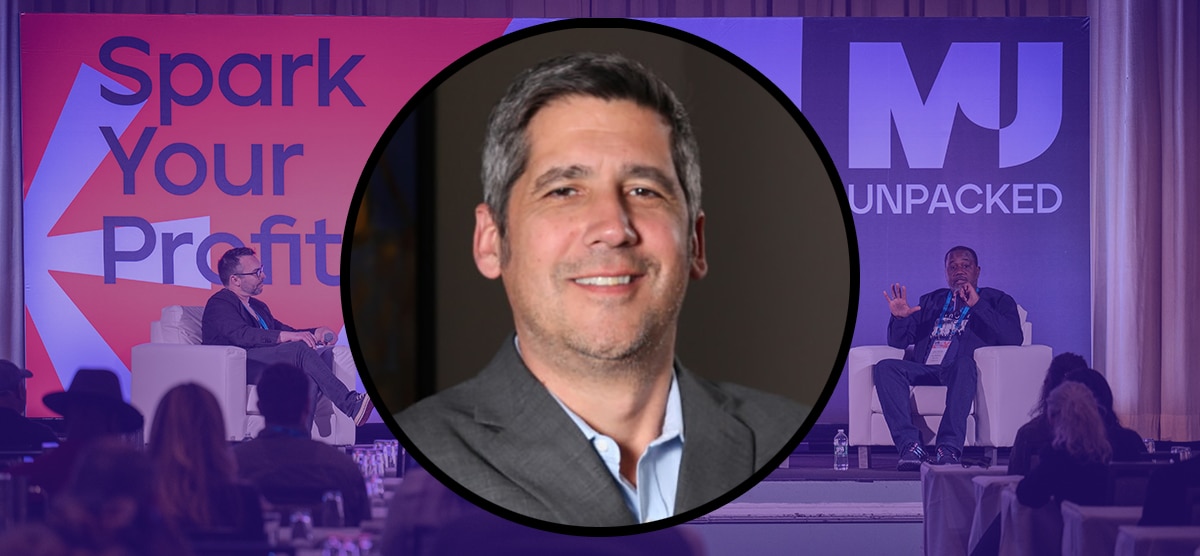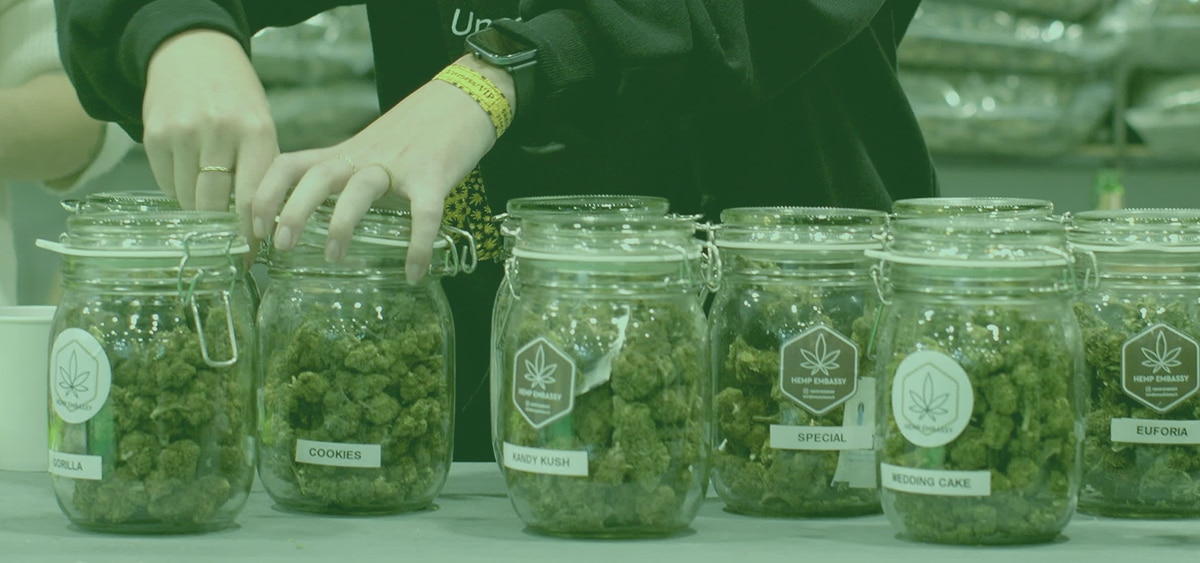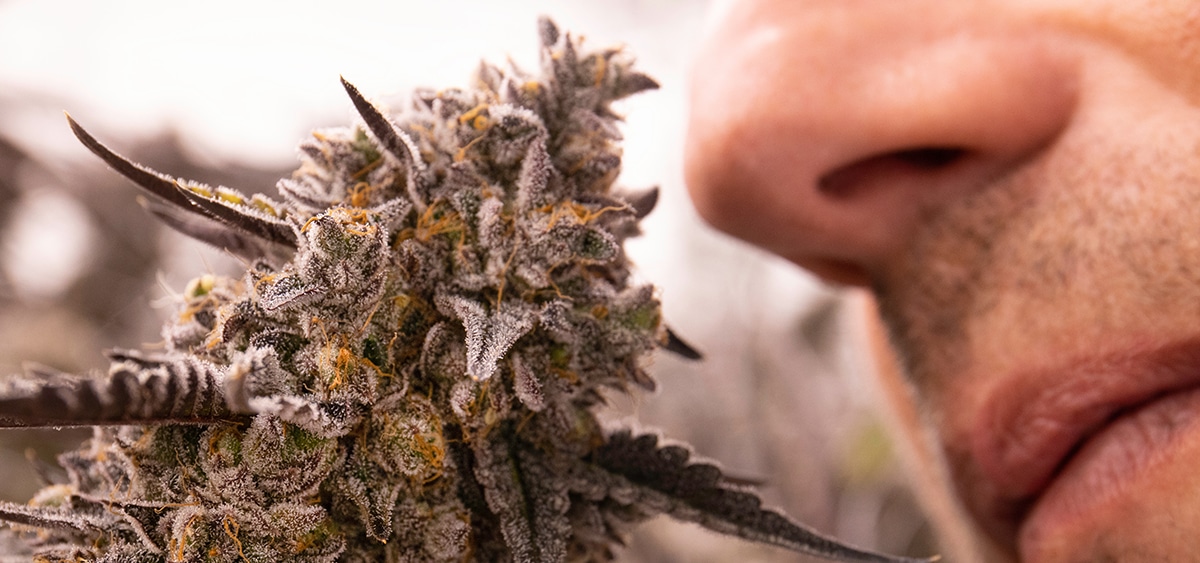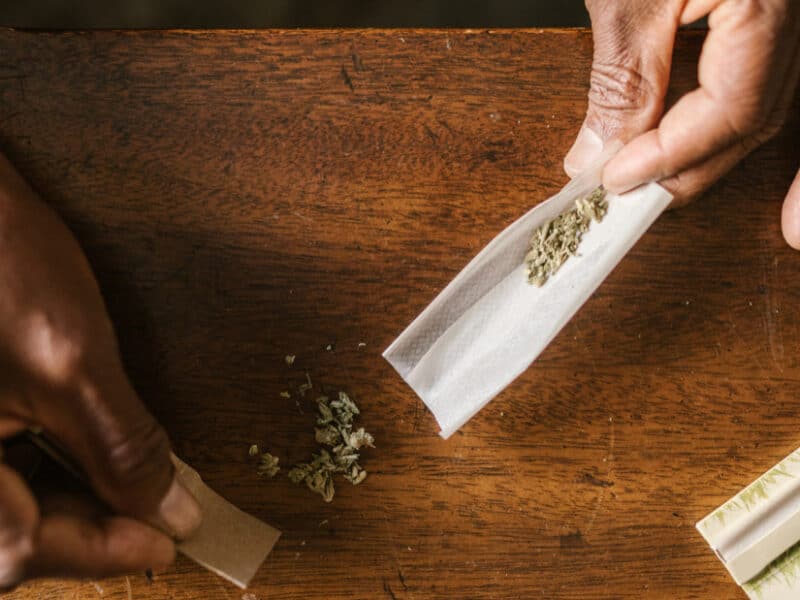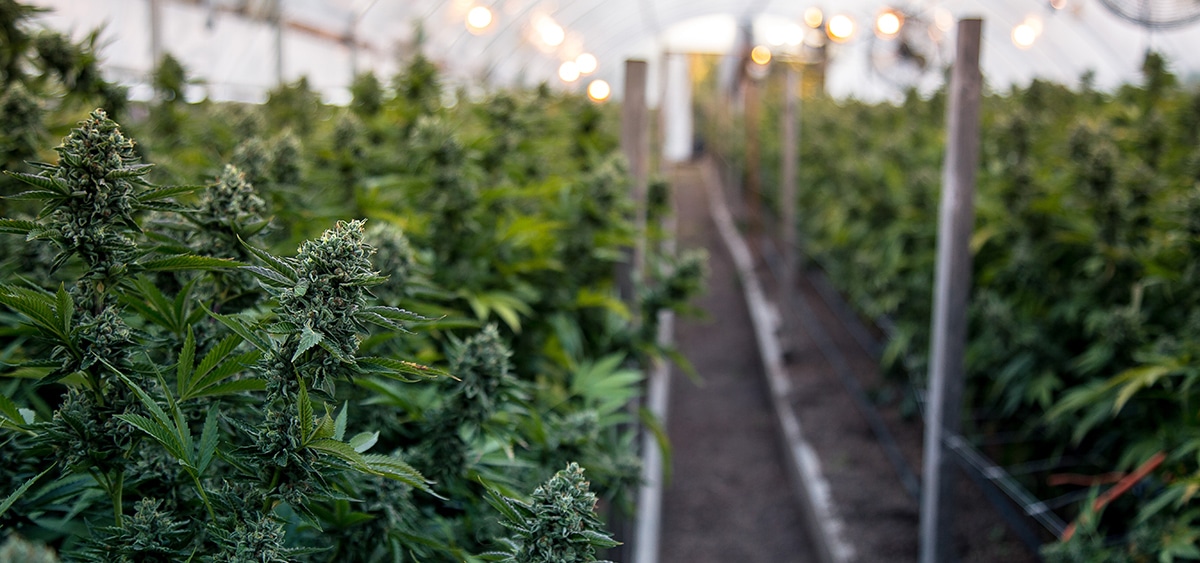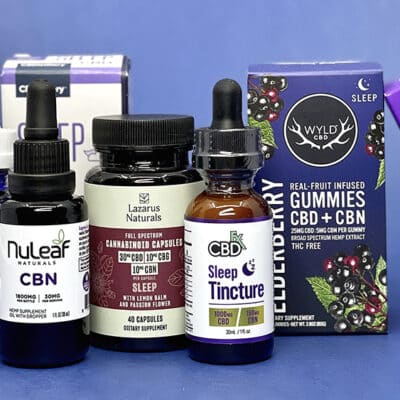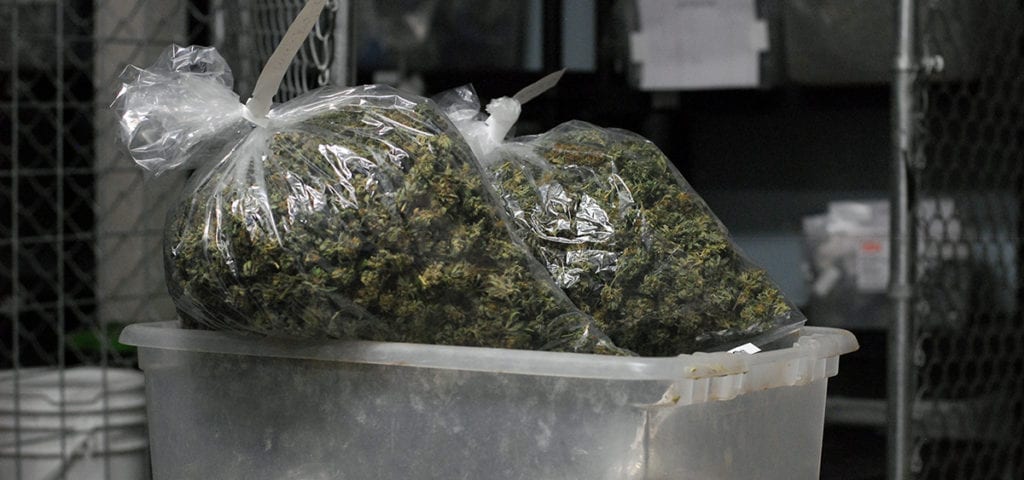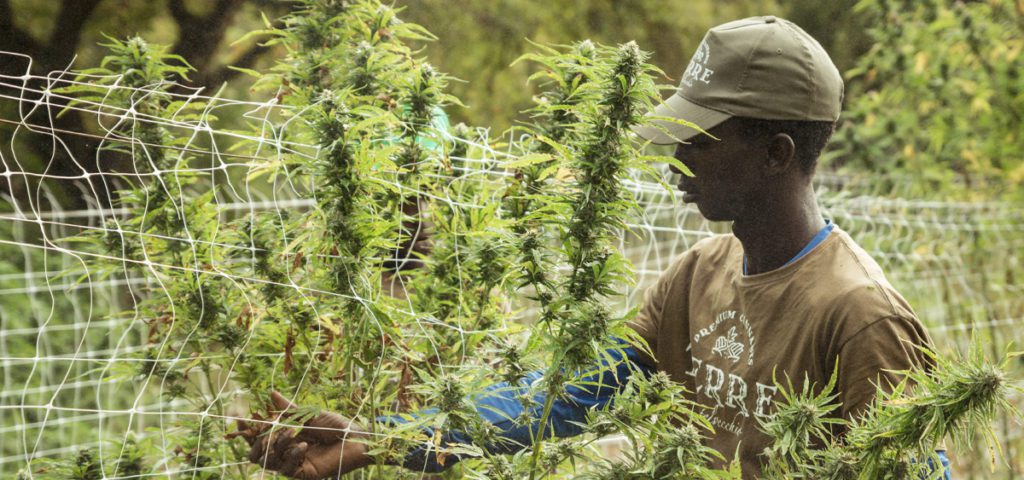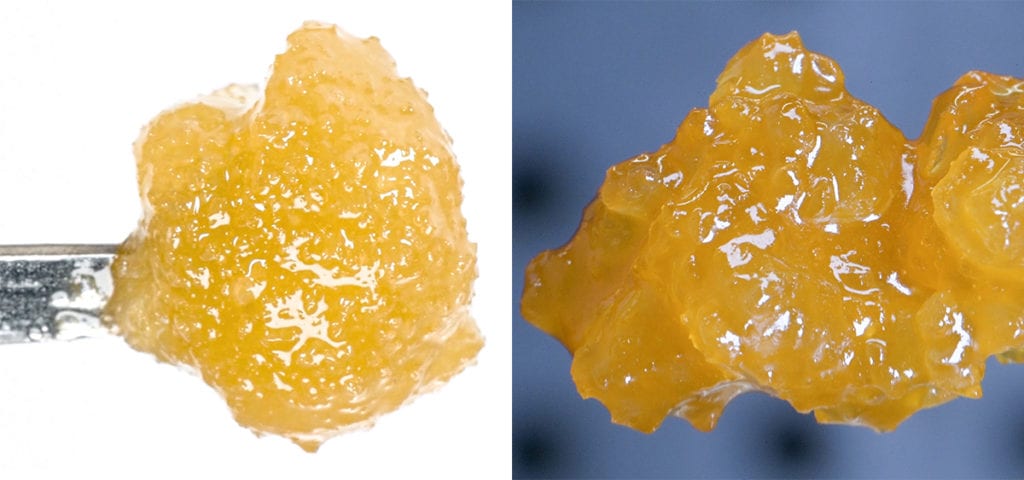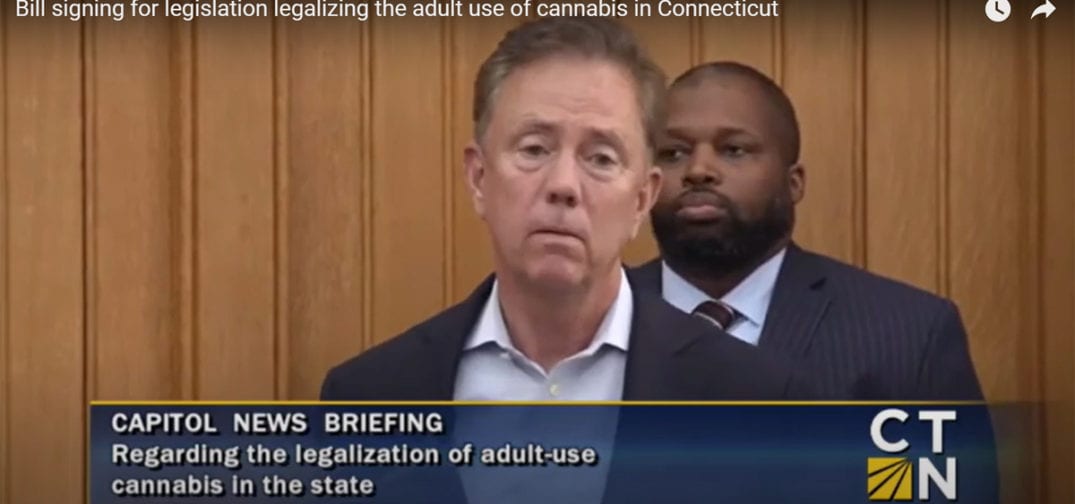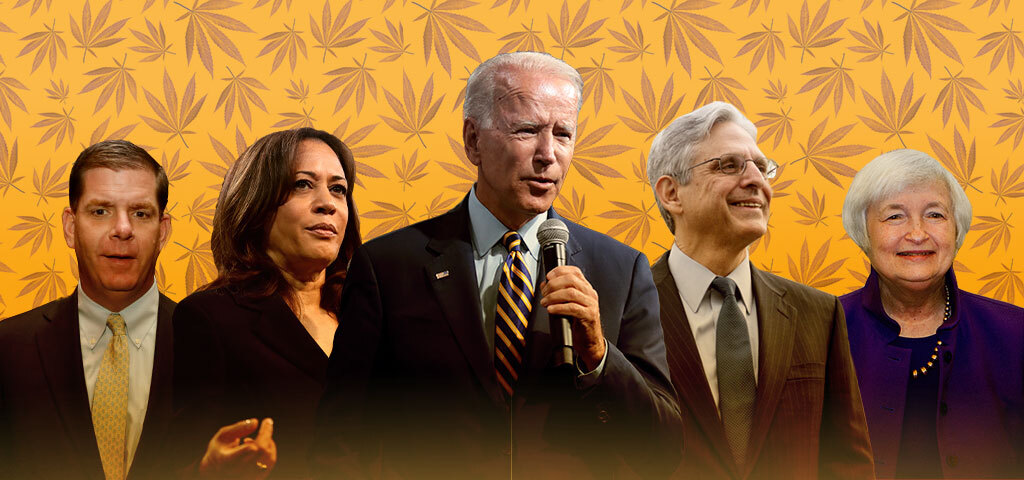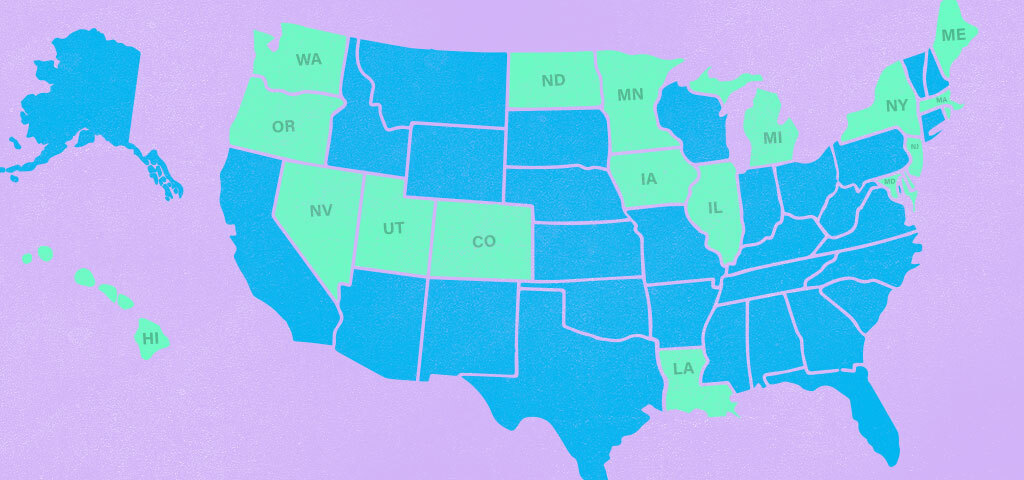Between strict regulations that vary from state to state and the long-lasting remnants of anti-cannabis rhetoric and stigmas, cannabis marketing is an inherently tricky job. The challenge, however, has prompted experts like Will Read — whose company CannaPlanners is dedicated to helping cannabis entrepreneurs find success despite the odds stacked against them — to prioritize simple aspects of brand building, such as a professional and inclusive brand experience.
Will recently joined our podcast host TG Branfalt to discuss cannabis marketing strategies, the prospects for an adult-use cannabis market in Vermont and other New England states, Will’s advice for what makes a strong cannabis brand, and more!
Tune in via the media player below or scroll down for a full transcript of this week’s Ganjapreneur.com Podcast episode.
Listen to the podcast:
Read the transcript:
Commercial: At Ganjapreneur, we have heard from dozens of cannabis business owners who have encountered the issue of cannabias, which is when a mainstream business, whether a landlord, bank or some other provider of vital business services refuses to do business with them simply because of their association with cannabis. We have even heard stories of businesses being unable to provide health and life insurance for their employees because the insurance providers were too afraid to work with them. We believe that this fear is totally unreasonable and that cannabis business owners deserve access to the same services and resources that other businesses are afforded, that they should be able to hire consultation to help them follow the letter of the law in their business endeavors, and that they should be able to provide employee benefits without needing to compromise on the quality of coverage they can offer.
This is why we created the Ganjapreneur.com business service directory, a resource for cannabis professionals to find and connect with service providers who are cannabis friendly and who are actively seeking cannabis industry clients. If you are considering hiring a business consultant, lawyer, accountant, web designer, or any other ancillary service for your business, go to Ganjapreneur.com/businesses to browse hundreds of agencies, firms, and organizations who support cannabis legalization, and who want to help you grow your business.
With so many options to choose from in each service category, you will be able to browse company profiles and do research on multiple companies in advance so you can find the provider who is the best fit for your particular need. Our business service directory is intended to be a useful and well-maintained resource, which is why we individually vet each listing that is submitted. If you are a business service provider who wants to work with cannabis clients, you may be a good fit for our service directory. Go to Ganjapreneur.com/businesses to create your profile and start connecting with cannabis entrepreneurs today.
TG Branfalt: Hey there, I’m your host TG Branfalt and thank you for listening to the Ganjapreneur.com podcast, where we try to bring you actionable information and normalize cannabis through the stories of ganjapreneurs, activists, and industry stakeholders. Today I’m joined by Will Read, he’s the founder and president of CannaPlanners, a Vermont-based website and marketing company specializing in the needs of the cannabis industry and this is Will’s second time on the podcast. And so I guess that makes you a friend of the show.
Will Read: It’s my third time, but who’s counting.
TG Branfalt: We’re not going to talk about the lost ‘second episode.’
Will Read: Yeah the infamous last pizza tapes.
TG Branfalt: So, before we sort of get into this episode, man, just remind people about your background and how you ended up in the space.
Will Read: Sure. It’s great question. I think like a lot of guests I’ve been a casual participant in the cannabis community for almost my entire life, so I’ve always had a passion there. I started CannaPlanners in 2015 after coming out of an agency that was dedicated to sort of supporting a specific part of a specific industry, nothing to do with cannabis, but they were experts in marketing and creating digital experiences around this one part of an industry. So in Vermont, as legalization started to percolate in the early 2010s, I started to do a little more due diligence, a little bit of entrepreneurial research into kind of where I might fit into this thing. I think a lot of people are because there’s no book on this thing and there’s very few people saying, “Hey, come on in and let me show you how to be part of this industry.”
A lot of us have to figure it out on our own. I think we all do. So it was really doing a little due diligence. I took a trip out to Colorado to see what their legal market was looking like and the first thing that hit me was at the time, lack of experience, and this is everything from conceptual branding, packaging design, and especially in-store experience. I had a short career…well, not short. I was with Apple for about six years. So that Kool-Aid, I definitely drank that Kool-Aid about the importance of experience and even the psychology behind opening a package is far more important to the consumer than what’s actually in the package.
So going out to Colorado and now of course, everything everywhere kind of looks like an Apple store, but back then there was nothing but opportunity. So I started CannaPlanners and we started as a web agency — websites are the other biggest part of what we do. And that’s where we really started from, we developed a platform that we could sell affordably to cannabis companies, lots of mom and pop startups, lots of farmers, things like that in order to get them online quickly, right? And efficiently, and then quickly as we started building websites, the thing I immediately saw the need for was the actual creative, because people were still coming to us with subjectively or objectively, depending on your point of view, bad branding. So we started doing a lot of creative work and really helping companies that way. I don’t even know if I answered your question, but there was a bit of it.
TG Branfalt: Yeah. What do you sort of define in your estimation as bad branding?
Will Read: This is a great question. So I don’t want to be flippant in kind of the way I speak about it, but what I really mean is, so our mission, our superhero goal is normalization. We want this market to succeed. We want this industry to succeed and as I’m sure you know and as I’m sure any of your guests would attest or listeners would attest to, the market is still small, it’s very, very boutique. It’s only in a handful of states and of course we’re not even really talking about CBD yet, which is obviously in a boom. So all of these aspects and really the “normalization”, I think a lot of that can be accomplished. And really what I mean is the acceptance by older generations, by younger generations, just people who’ve been “brainwashed,” I’m using air quotes on Zoom, but brainwashed through the war on drugs, through rhetoric, whatever, to have a certain opinion about cannabis.
And traditionally, a lot of businesses have towed the line and really sort of marketed towards themselves towards the stoner culture and I appreciate that. I’m part of the stoner culture. I’m a stoner, but I’m also totally keenly aware of the potential that this industry has as it’s only touching a razor-thin margin of the entire potential marketplace.
So really what I’m saying is how can we move… When I say bad brands, really what I mean is, “How do we make brands more accessible?” That’s all I’m saying. When you see certain imagery and unfortunately it’s things like the cannabis leaf, it’s been stigmatized. The bright green cross, or even that neon green, a lot of these things have, again, we’re talking about psychology here, but they have a certain psychological effect that can do really one of two things, speak to one specific person and/or turn off the rest. Right? So we want to, our goal is just to really create professional, good-looking brands that can be applied to a cannabis space. And hopefully a little bit more broader of a consumer base.
TG Branfalt: Tell me a little bit more about how branding can help normalize cannabis. I mean, I understand what you’re getting at in terms of sort of this imagery, but sort take it a step further for me because this is really, really interesting.
Will Read: Sure. Yeah. So I think going back to my life at Apple, that unboxing. I can remember when iPad came out and for two weeks before iPad came out it was at a time when the Apple employee would actually unbox the thing for you and draw back the curtain. And there’s this whole allure around consumer products. And I think that’s something that cannabis has to some extent, but it needs even more just in terms of, again, bringing it to a more interesting place, not pigeonholing it or keeping it in line with the ways of the past. We’re just trying to break out of that.
So I think a specific logo for sure is important, but it translates to the whole thing of what we do. So for our retailers. It’s like, okay, we’ve built you this cool logo, and it’s on this awesome website that we’re maybe, excuse me, helping drive traffic to, but what are the rugs in the store? What kind of displays are you getting? How is this whole thing cohesive to an experience as opposed to just being a logo? You know what I mean?
TG Branfalt: Yeah. So since our last interview two years ago, you had started the company in 2015, as you said, our first real conversation was in 2018. You’ve been in the industry for a few years. It was still it was the year that Vermont legalized. And so we had talked quite a bit about that and the CBD and hemp market wasn’t as large as it is now.
Will Read: Oh, man. Yeah.
TG Branfalt: So tell me about how your business has grown since our last interview two years ago.
Will Read: Insanely. And really we’re just busy. Okay, so CBD has fundamentally changed our company. We’re now far more stable than maybe other startups that are kind of point are, luckily people are looking to start and especially during COVID, right?
TG Branfalt: Yeah.
Will Read: We can get into that too, but COVID has actually had a pretty positive impact on CannaPlanners. People are being entrepreneurial because they’ve lost their jobs and they’re stuck at home.
TG Branfalt: Wow.
Will Read: So it’s a big… Yeah. So since the last time we chatted at NECANN or whatever, around the time, yeah. So the CBD industry specific because we’re a Vermont company. So that’s where we started a lot of our clients, a good deal of our clients are in Vermont. A good deal of them are farmers who traded in the dairy cows for hemp fields. So it was about helping them kind of a brand and for people in Vermont, there’s a certain allure to the Vermontiness of kind of how we… So we do plenty of CBD products. We’ve designed, I think in the last… So in 2019, catch me at the end of 2020, which I guess is soon, but last year we probably built around 28 brands, several hundred product designs. I think we launched something like 40 websites.
TG Branfalt: Wow.
Will Read: This year we’re definitely on track to double all of that.
TG Branfalt: Seriously?
Will Read: Oh yeah.
TG Branfalt: That’s immense growth for a small company.
Will Read: I love it. And not for the competition, there’s a competitiveness to being an entrepreneur and having been through my share of 9-5’s and failed entrepreneurial ventures, it’s awesome when something hits and there’s a huge potential market out there that we’re not talking to. So right now our goal is we’re scaling up. So for us that means really new people, new talent, we’ve hired a new designer, we have a new vice president of marketing, we have new salespeople. So we’re trying to expand. Because we’re just a digital company, we have clients all over the place, but we really want to focus on some of these really growing like crazy markets, California, Colorado, all these places.
TG Branfalt: So in the time, since our last two years, as an entrepreneur, what have you learned since our last interview as someone who’s growing business in this industry?
Will Read: Yeah. The one thing, and I don’t even know if this is a good answer to your question, but I would say the most important thing I’ve learned is how and when to step outside of my comfort zone. So for entrepreneurs it’s really, and I guess like anything in life, but for entrepreneurs it’s really easy to get complacent and maybe not be so open to trying new ideas or even doing things like four years ago you would never have caught me on a podcast. Or not four years ago, I was definitely on a podcast four years ago, but prior to CannaPlanners, you wouldn’t catch me doing this. It’s way outside of my comfort zone. It’s not who I was.
So you have to kind of evolve and stepping outside of your comfort zone, getting in front of people, being able to do all this client work and then confidently look back at it when I’m talking to new people and say, “Hey, I’ve built this thing with a team of insanely amazing people who have a incredible level of expertise. How can we help you kind of be better?”
TG Branfalt: What do you look for when building these teams?
Will Read: You’re going to think I’m so lame with this answer. The answer is, “How cool are you?” Seriously, that’s it. If I can’t vibe 20%, you know what I’m saying? If it’s weird, it’s so important, and I’ll tell you why. That is such a lame answer, but it’s true. And the reason is because while I’ve told you how we’re dedicated to normalizing the industry and how I’ve told you about how we’re doing all these cool things, what we really want to do is give good customer service. That’s it. We have these sets of services that we do, but really what we want to do is provide good customer service. Well, you, but maybe you’re not going to be surprised at this, but your listeners might, customer service in the cannabis industry I would say is generally not so great.
You have some people who are doing it right, but because of where the industry is, it’s still very nascent. It’s still very new. People don’t have the same sort of business acumen as maybe other industries you’re accustomed to. There is an opportunity just to be a group of cool people who can empathize with business owners who are trying to do something that’s never been done before. So that’s it. I want to find cool people who understand the vision of what we’re trying to do and who are happy to empathize and relate to our clients. It’s the most important thing.
TG Branfalt: How are you preparing your company’s growth as the Northeast, where you’re based, is on the verge of really blowing up, right? Sales commence in Maine here pretty shortly.
Will Read: Couple days.
TG Branfalt: New Jersey is very likely going to legalize during the election, New York’s going to follow, Connecticut‘s been talking about it, Rhode Island.
Will Read: Yep.
TG Branfalt: I mean, you name it. How are you preparing for that growth?
Will Read: Well, this is another… You’re good at this, Tim. You always have good questions. This is a really good question. I think one of the things, and I’ll answer this as an entrepreneur, one of the things that really attracts me beyond all the stuff I’ve been talking about, one of the things that really attracts me to the cannabis industry specifically is it’s infancy. So we can only scale as quick as the industry does. So I’m happy to take… Not that we are taking it slow, but I’m happy to evolve with California and Colorado and from all these states that have already passed. There’s what? I don’t know what it is now, but 27 medical States and I don’t know, 12 or 13 recs, something like that, whatever it is. There’s 50 total States.
TG Branfalt: Yeah.
Will Read: So, and then a whole world that’s going to follow suit of whatever the United States does. At some point, maybe, I don’t know, we’re maybe losing our edge here, but so yeah. That really excites me. It’s we can scale responsibly as soon as Jersey hits, well, we’ll have a stronger Jersey outreach. Same with same with any of these States. So right now we’re going to focus on New England, or we are focusing on New England. Maine has been very active for us because, like you said, we’re basically two days away. We’ll see what happens. But two days away from the first rec store to open in Maine. There’s plenty more so, yeah.
TG Branfalt: So, I mean, I know that you’re not a company that touches the plant and you don’t have a lot of the challenges that those firms do have. I mean, even hemp businesses face a lot more challenges than sort of ancillary companies, but what are the challenges for you operating a digital marketing business in sort of the gray market that is Vermont. And I don’t want to call New York a gray market, but the hemp only in medical industry here, what are some of the challenges that you face with those?
Will Read: Totally. So any… And I’m using air quotes again here on Zoom, but any kind of let’s say non-cannabis business, just any other industry business has access to, I mean, you name it when it comes to marketing, you want to put a billboard up? Great. You want to buy TV? You want to be on the supe? Whatever. You want to advertise on Facebook and Google? Great. Even CannaPlanners, and it’s because the company’s called CannaPlanners, That’s the only red flag, we don’t touch a plant, but I can’t even advertise on Facebook.
TG Branfalt: Really?
Will Read: Really. Yeah. So I’m okay with that. I’m actually okay with that. But so the answer is there’s plenty of hurdles and that’s part of the excitement of an infant industry is we get to solve a lot of these problems. I would say one that I can speak to fairly recently was the entire CBD industry, retail, consumer market goods, was affected two years ago when the only viable non-high risk payment merchant cut the cord.
TG Branfalt: Yeah.
Will Read: So we took it upon ourselves to form a relationship with Square. This is when they started and quickly canceled their pilot program. So I booked a ticket to San Francisco and went out there and really tried to explain what was going on in this industry to whoever would listen. And not only that, but how CannaPlanners had a level of responsibility before Square in the vetting process. We want to work with reputable people who are doing meaningful work, and we’re only going to work with meaningful people who are doing reputable work.
So how do we iterate that to a big humongous company like square? Luckily for us, it was something they agreed to. So the marketing side of it, it has challenges. So, again, we’re taking it slow. We’re not doing Facebook ads. We can’t. And I don’t want to nefariously circumvent algorithms even, that’s not a standard of kind of doing business that we want to follow. If we’re going to do it, we’re going to do it right. So we focus on really content, building good content for our clients on top of the beautiful websites we build them using the awesome brands that we build for them when it happens.
TG Branfalt: This question might seem a little bit strange, but a lot of people might not know that in Vermont, you’re not actually allowed to, billboards are forbidden on the —
Will Read: It’s the only state without a McDonald’s in the capital city. Did you know that?
TG Branfalt: I did know that.
Will Read: Okay.
TG Branfalt: Do you think that sort of having to deal with that restriction, that long-standing restriction, maybe put you in a sort of unique position to sort of walk this forbidden sort of marketing line?
Will Read: Hmm. I haven’t really considered that. I would say probably, maybe it had a small influence, but probably if I’m being honest, the way that we have been scaling out CannaPlanners has really been a response to our clients. Not so much the things going on outside of our bubble. Of course we’re following regulation where it needs to, we are definitely setting a bar when it comes to that, in terms of what we expect of our clients. We want them to be transparent. We want them to be transparent straight up.
So, yeah. I think all of the things that we’ve done, even creative and then marketing, and then what we’re growing into now, which will be email marketing and social media management and all these other kind of viable digital marketing tactics, we’ll grow into them, but we’re really just responding to the client needs right now. And it’s slow in some cases. The strategies I mean, the strategies are slow.
TG Branfalt: Tell me about sort of building a company in a small Northeastern state, do you think that that is a benefit or a detriment, because people may see, “Oh, this is a small firm in Vermont. Why don’t we go with the big guy in California?” What do you think? Do you think it’s a detriment or?
Will Read: No, not at all. I would say it for-sure works for us. And I think more applicable to your question then where we are in the geography of the country is where we stand in the timing of the industry. So my competition, our competition, there’s agencies doing what we do to some extent or another. There’s not many. With that said, look outside the cannabis industry, there’s a million word press agencies and design, there’s all of these things. There’s a huge creative world out there. It’s all about digital marketing, everybody and their grandmother does… You know what I’m saying?
TG Branfalt: Yeah.
Will Read: So I think it’s about timing. And in some instances we’re also building a brand. I think if I were to be completely honest, being synonymous within this industry for the things that we do would be incredibly amazing.
TG Branfalt: And so you mentioned that you personally can’t market because of your name and these sort of issues.
Will Read: Yeah.
TG Branfalt: So what do you do to get your name out there?
Will Read: Totally. Well, we work with people like you. We work with the team at Ganjapreneur, for sure. It’s an amazing resource for us. We’ve done an incredible amount of outreach just through some very passive marketing through Ganjapreneur, it’s been great. So there are a couple of hubs like this that allow us to sort of put our name out there. Of course, we’re not at NECANN this year, we’re not at BizCon this year. We’re not at CannaCon, we’re not at any of these this year.
TG Branfalt: Yeah.
Will Read: So I think a large part of what we’re going into for ourselves is kind of practicing what we preach. And we’re starting to expand our content creation. We’ll be building out more video resources just to sort of engage directly with whatever our community, but also to have a lasting resource for other entrepreneurs who are looking for these types of things.
When I first started off, I was going to the old Ganjapreneur website and doing that whole thing and you go on Reddit and you know what I’m saying? You try to network, and this goes back to stepping outside of the comfort zone. You got to go meet new people. You got to, for sure. It’s the most important thing. So right now, we’re doing advertising through you guys. Most of our marketing dollars have kind of pushed back, have been drawn back in so that we can use them for sales outreach and doing more proactive sales outreach. But, yeah.
TG Branfalt: How big of a loss — and the events that you had mentioned they’ve been canceled because of the coronavirus, how big of a loss has that been? Because when I went to NECANN, and I had met you prior to NECANN anyway. I mean, it was massive.
Will Read: Yeah. Massive.
TG Branfalt: And it was full and it was bustling. I mean, how big of a loss has that been you think?
Will Read: Well, financially, those things are expensive, but it’s important to again, get out there and meet people and try to retain business. But for us in this industry, it’s more than that. We’ve got this burgeoning community of a lot of great people who are trying to do cool stuff. And that’s kind of what I miss is I’ve got a group of friends who I only see, it’s like fish shows or dead shows or whatever. You only got the group of friends that you see at those shows or at the trade shows or whatever. So that part I miss.
TG Branfalt: So when somebody gets in touch with you, what’s the most common question that you get on that first sort of outreach?
Will Read: Well, if it’s not, “How can we start building our brand?” We’ve been getting a lot of outreach regarding social media, paid social media and yeah. It leads to a larger conversation about those rules and regulations, those terms of services, that those kinds of companies enact, but also, “What are other companies doing? What are they doing in place of this? Can I talk to you about SEO? How’s your website? Do you even have a social media account? Do you have an Instagram account?” So a lot of these things, the industry is ripe with eager business people. And a lot of them are jumping in for the first time. Right? So there’s a lot of just basic consulting work that we get hit up for. Just, “How do I start a company?” I can’t help you there, but I can help you make it look awesome.
TG Branfalt: So what’s your advice for those really early-stage entrepreneurs who reach out to you with these sort of issues?
Will Read: Can’t stop, won’t stop. You’re going to run into your haters, you’re going to fail, you’re going to have days where you’re like, “What the hell am I doing?” And it’s about pushing through those days. And my perspective is purely in the cannabis industry, man. This is what I know. We’ve been doing this for a little while. And I-
TG Branfalt: Five years is a lifetime in this industry.
Will Read: Yeah, it feels like that. For sure. But I think that you have to have that mentality as an entrepreneur, but you have to especially have that mentality as a cannabis entrepreneur, because the odds are stacked against you. I don’t know if everybody has forgotten this, but cannabis is federally illegal.
TG Branfalt: Is it?
Will Read: Right. Did you know?
TG Branfalt: I seem to forget that quite frequently.
Will Read: Oh, yeah. On the regular, but that’s a big thing. This could come crashing down at any second and it’s about, excuse me, but not giving a fuck about that. You have to get beyond that and dig into the work because it is meaningful. This is happening. So can’t stop, won’t stop.
TG Branfalt: Man, we’ve known each other for a while and then it’s not like we speak on a very regular basis.
Will Read: Yeah, sure.
TG Branfalt: But you offer this sort of very forthcoming, very solid insight, that a lot of people they try to dance around sort of their strategies and that sort of thing.
Will Read: No.
TG Branfalt: And you’re just like, “Here it is, guy.”
Will Read: Yeah.
TG Branfalt: So I really appreciate that about you.
Will Read: Well, thank you. That’s a very nice thing for you to say. And I think that there’s value to me being direct. It’s not wasting time, it’s display. I mean, you’re looking at me and we’ve had this conversation a few times at this point, I’m still passionate. I love what I do. I’m excited to end this podcast so I can go back to work. Not really, but that’s the thing is I love what I do and I have experience in it. So I want people to understand that or part of just my directness or just my enthusiasm is that there’s a bit of a fluctuating formula that can be applied to this industry. And we got a good track record. Let’s go and crush it. Let’s go get it. It’s out there. Let’s make a thing.
TG Branfalt: So I am going to let you go and let you get back to your work, but before I do, man, tell the people how they can find out more about you and give the people what they want.
Will Read: Yeah. We’re on Myspace, we’re on Friendster. You can get my Tinder. No. You can find us on Instagram. We’re @CannaPlanners, CannaPlanners.com. Those are great places to find us and we’d love to hear from you, for sure.
TG Branfalt: Cool, man. Hey man, I really appreciate your time today and hopefully we’ll have another conversation in less than two years and there’ll be a bustling industry in Vermont and we can meet on the boat and just chief out. And even though they probably won’t allow that, because we’ll still be going.
Will Read: Oh, I’ve been doing that since the nineties.
TG Branfalt: Oh, man. That’s Will Read, he’s the founder and president of CannaPlanners, a Vermont-based website and marketing company that’s specializing in the needs of the cannabis industry. Man, thank you so much for being on the show and…
Will Read: My absolute pleasure. Thank you for having me.
TG Branfalt: You can find more episodes of the Ganjapreneur.com podcast in the podcast section of Ganjapreneur.com on Spotify and in the Apple iTunes store. On the Ganjapreneur.com website, you will find the latest cannabis news and cannabis jobs updated daily, along with transcripts of this podcast. You can also download the Ganjapreneur.com app in iTunes and Google play. This episode was engineered by Trim Media House. I’ve been your host, TG Branfalt. (Silence)

